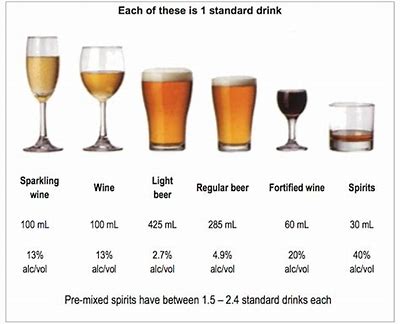Research increasingly finds that alcohol isn’t the best for health, and it seems like more people than ever are interested in drinking less alcohol.
“Alcohol use is associated with accidents, injuries and risk of sexual assault,” Jessica Salvatore, associate professor in the department of psychiatry and director of the Genes, Environments, and Neurodevelopment in Addictions program at Rutgers University’s Robert Wood Johnson Medical School, says.
“Alcohol use can also interact with medications or other drugs, resulting in adverse consequences. There are also more subtle effects, such as disrupted sleep.”
Alcohol is also linked with an increased risk of developing certain types of cancer, as well as worse symptoms of depression, registered dietitian Vanessa Rissetto, CEO and co-founder of Culina Health, warns.
Alcohol use is associated with accidents, injuries and risk of sexual assault
“We want to make sure that we at least stay within the guidelines so the negative effects don’t impact us too much,” she says. The federal Dietary Guidelines for Americans recommend that women have no more than one drink a day, and that men limit themselves to two or fewer daily drinks.
But not everyone wants to completely swear off alcohol: Plenty of people are instead trying to figure out ways to cut back on how much they have for their overall health without going fully sober.
“I discuss this all day, every day with patients,” Jessica Cording, a registered dietitian in New York and author of The Little Book of Game Changers, discloses.
Interested in scaling back on how much alcohol you drink? Experts recommend trying these tricks.
Cut down on your portion size
You’re probably aware that there are different portion sizes for the various alcohol types, but that doesn’t mean you need to have that much every time you have a drink.
If you like the taste of your favorite alcohol but want to have less, Cording suggests having a smaller serving and changing up the glassware you use to make it look bigger. One example: drinking half the amount of a serving of wine from a petite sherry glass.
Find new rituals to unwind
Cording often hears people say that they use alcohol as a tool to help them unwind “but, from a biochemical standpoint, alcohol doesn’t improve your anxiety and tends to make it worse due to brain chemistry changes that happen,” she says.
there are different portion sizes for the various alcohol types, but that doesn’t mean you need to have that much every time you have a drink
If you use alcohol as a de-stresser, Cording suggests trying to find other rituals that feel relaxing, like doing yoga or another form of exercise, or having a different kind of beverage that can help you mark the transition between stressful and more relaxed times. Using alcohol to de-stress is a habit, Cording says, and you’ll need to work on swapping in new habits to make the switch.
Savor your favorites
If you have a favorite alcoholic drink, Cording says you’re OK to keep on enjoying it in moderation — you can just cut back how much and how often you have it. “Figure out what types of alcohol are the most satisfying to you and have that,” she says.
If you love kicking back with a glass of whiskey at the end of a long day, you can try doing it at the end of the day on Friday to mark the start of the weekend, Cording suggests. You might also decide to save your favorite beer for a time when you know you can sit and savor it, she says.
Dive into nonalcoholic options
Cording recommends looking into nonalcoholic spirits, beers and wines. “There has been so much growth and innovation in that category,” she says. “There are so many great nonalcoholic spirits where you can create really beautiful cocktails with them, or just keep it simple with a spirit and soda water.”
Some nonalcoholic cocktails contain relaxing ingredients like adaptogens — herbs, roots and other plants that help the body manage stress
Some nonalcoholic cocktails also contain relaxing ingredients like adaptogens — herbs, roots and other plants that help the body manage stress — if unwinding is the goal, Cording points out. “I really encourage exploring these drinks and opening up your mind,” she says.
Rotate alcohol with nonalcoholic drinks
If you’re planning to have more than one alcoholic drink at a gathering, Rissetto suggests adding nonalcoholic beverages to the mix. So, you could sip a glass of wine, followed by a seltzer water with a slice of lime or something similar.
Nonalcoholic beers and hop waters have come a long way, even in the past few years, with many having a similar taste as their alcoholic counterparts. Having a regular beer, followed by a nonalcoholic beer, can be an easy rotation to make.
But while you can technically have any nonalcoholic drink in between alcoholic versions, Rissetto suggests seltzers because “they have less calories and sugar.”
Set goals and keep track
If you want to be diligent about cutting back, Salvatore recommends checking out the NIAAA’s evidence-based tools for help. “They have worksheets that can help people with setting goals and keeping track, and exercises to help identify and avoid triggers,” she says.
But if worksheets aren’t your thing, you can decide in advance how many days a week you want to drink and how many drinks you’ll have on those days, keeping track in notes on your phone, or on a sheet of paper you carry around in your wallet, the NIAAA suggests.
Overall, Rissetto recommends being patient with yourself. “Give yourself a break,” she says. “Try to decrease the amount of drinks you are having per day and then work from there.”
Source: Yahoo Life


